Are you facing an interruption in services from your social service agency? We understand how crucial consistent support is for you and your loved ones. In this article, we'll discuss the reasons behind service interruptions, as well as what steps you can take to navigate this challenging situation. Join us as we explore practical solutions and resources that can help - read on to learn more!
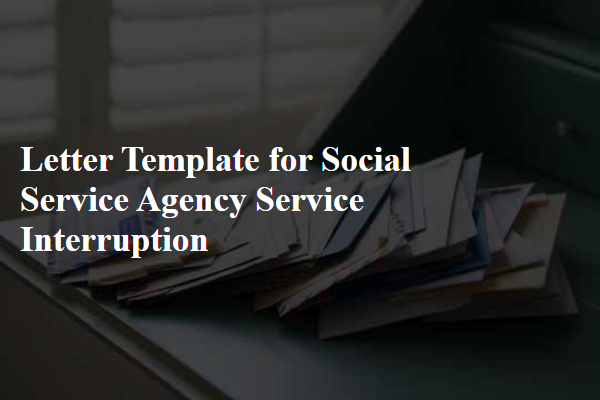
Clear communication of the reason for interruption.
Service interruption notifications from social service agencies must clarify the specific reason for the disruption. For example, a high-demand situation during a crisis, such as a pandemic (COVID-19 in 2020), may require resource reevaluation and staff realignment. Essential services like food assistance, mental health support, or housing resources may be impacted. Communication should outline the timeframe of the expected interruption, the alternative resources available, and the means of ongoing support via phone, email, or online platforms. Ensuring clarity helps maintain public trust and provides necessary guidance for those relying on these critical services.
Expected duration and timeline for service resumption.
Due to unexpected circumstances, the social service agency in [City Name] is experiencing a temporary service interruption. The expected duration for this interruption is approximately [X weeks/days], with services anticipated to resume on [specific date]. During this period, clients may seek assistance or resources from nearby agencies such as [List alternative agencies or resources if applicable] in [specific location] to ensure their needs are met. Updates regarding service resumption will be communicated through [methods of communication such as website, social media, or local news] promptly to keep all stakeholders informed. Your understanding and patience during this time are greatly appreciated as we work to restore full services.
Alternative resources or support options available.
Service interruptions can significantly impact individuals reliant on social services, necessitating alternative resources to ensure continued support. Local community centers, such as the Westside Community Center in Los Angeles, offer food assistance programs, including weekly pantries that distribute fresh produce and non-perishable items to struggling families. Additionally, organizations like United Way Connect can facilitate access to mental health support and financial counseling through trained volunteers. For immediate needs, helplines such as the National Domestic Violence Hotline (1-800-799-SAFE) provide 24/7 assistance, ensuring individuals in crisis receive immediate help. Furthermore, local churches often serve as emergency shelters, providing a safe haven for individuals temporarily without housing. These options help bridge the gap during service interruptions, ensuring that community members maintain access to essential support systems.
Contact information for further inquiries or assistance.
Service interruptions at social service agencies can significantly affect clients in need of crucial support. Agencies may experience temporary closures or reduced service hours due to unexpected events such as natural disasters, staffing shortages, or funding issues. During these interruptions, clients should reach out for assistance or inquiries at designated contact points. Many agencies provide specific phone numbers or email addresses (often monitored by trained staff) to ensure prompt responses and alternative support resources. These communication channels, like the 24-hour helpline (for example, 1-800-123-4567), are essential for clients seeking updates and urgent guidance related to their social service needs.
Apology and reassurance of commitment to quality service.
A service interruption at a social service agency can significantly impact vulnerable populations. The affected clients, including low-income families and individuals with disabilities, may experience disruptions in critical support services such as food assistance, healthcare access, and housing support. Apologies from the agency leadership are essential, including clear communication regarding the nature of the disruption, which could be attributed to factors such as unexpected staff shortages or funding challenges. Assurances of continued commitment to quality service must be emphasized, highlighting ongoing efforts to resolve issues and prevent future interruptions. Plans for reinstating services, including timelines and alternative support options, are crucial in ensuring clients feel valued and supported during the disruption. Regular updates through community meetings or newsletters can also maintain transparency and reinforce the agency's dedication to serving the community effectively.
Letter Template For Social Service Agency Service Interruption Samples
Letter template of service interruption notification to clients from social service agency
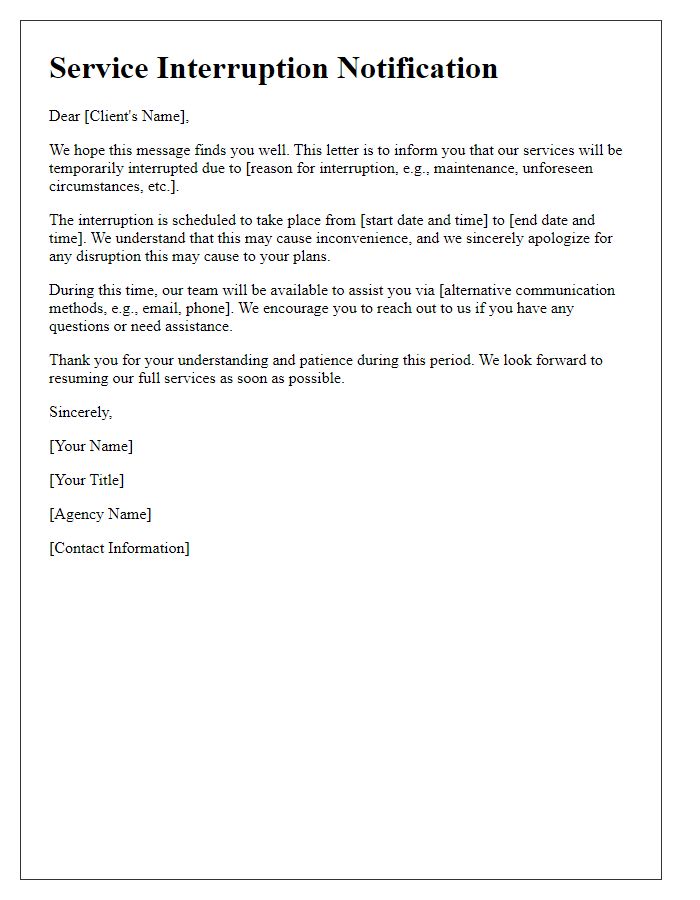
Letter template of service disruption update for social service agency clients
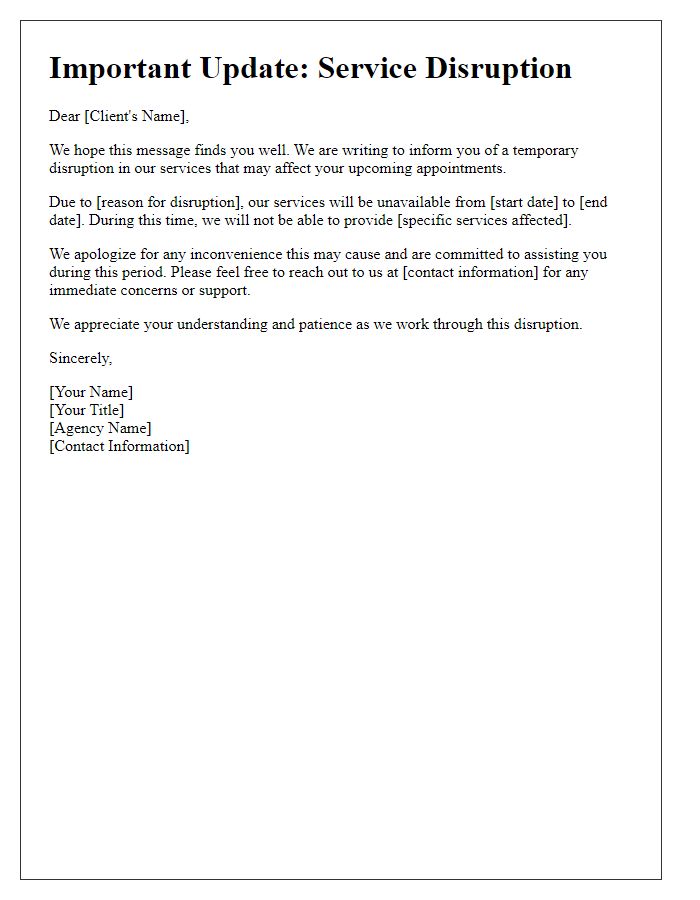
Letter template of temporary service halt for social service organization
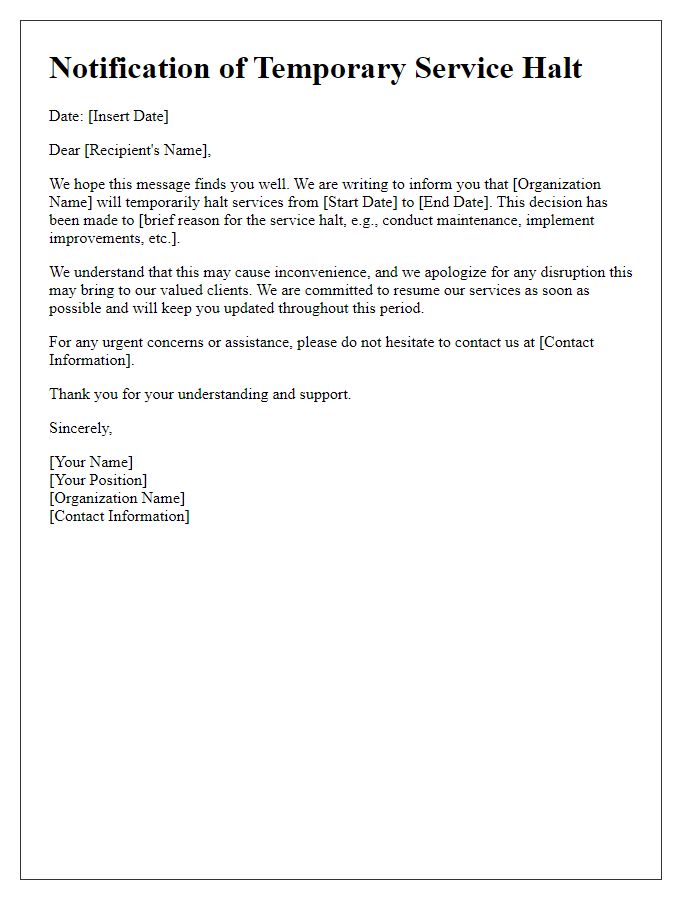
Letter template of client communication regarding service suspension by social service agency
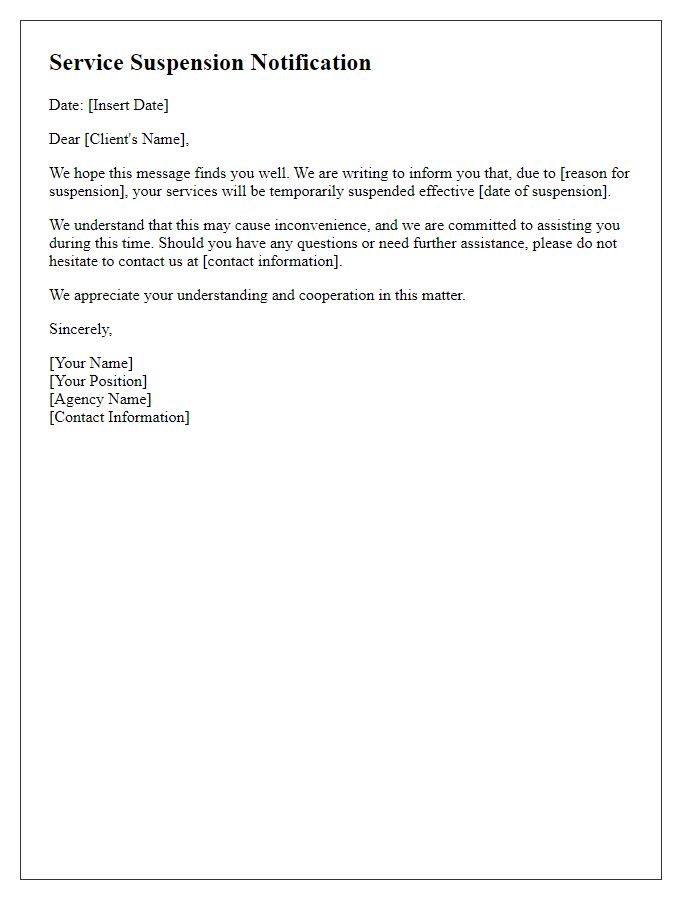
Letter template of advisory for service unavailability from social service provider
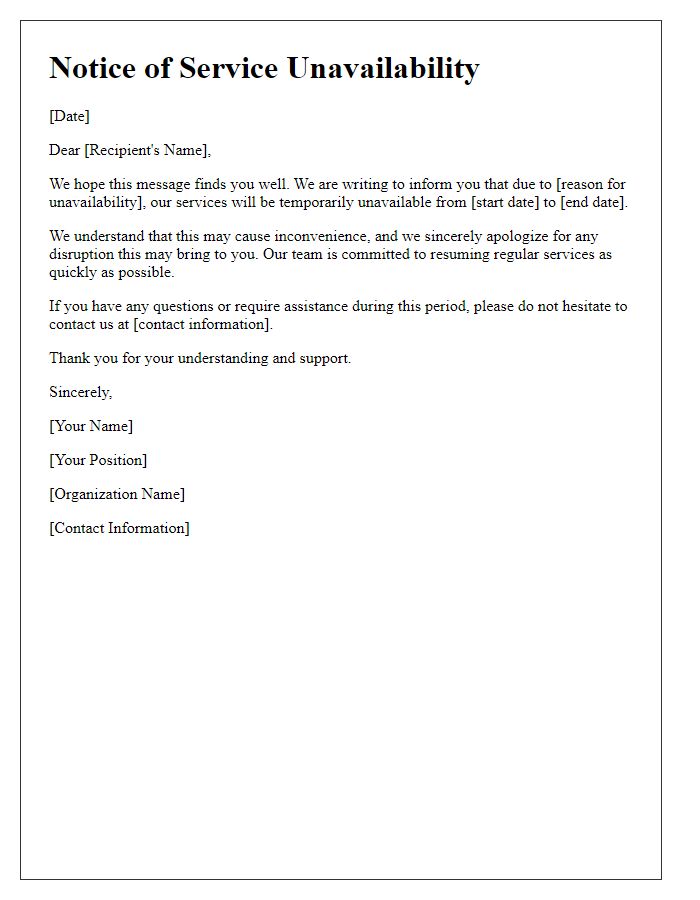
Letter template of notification regarding service delay from social service agency
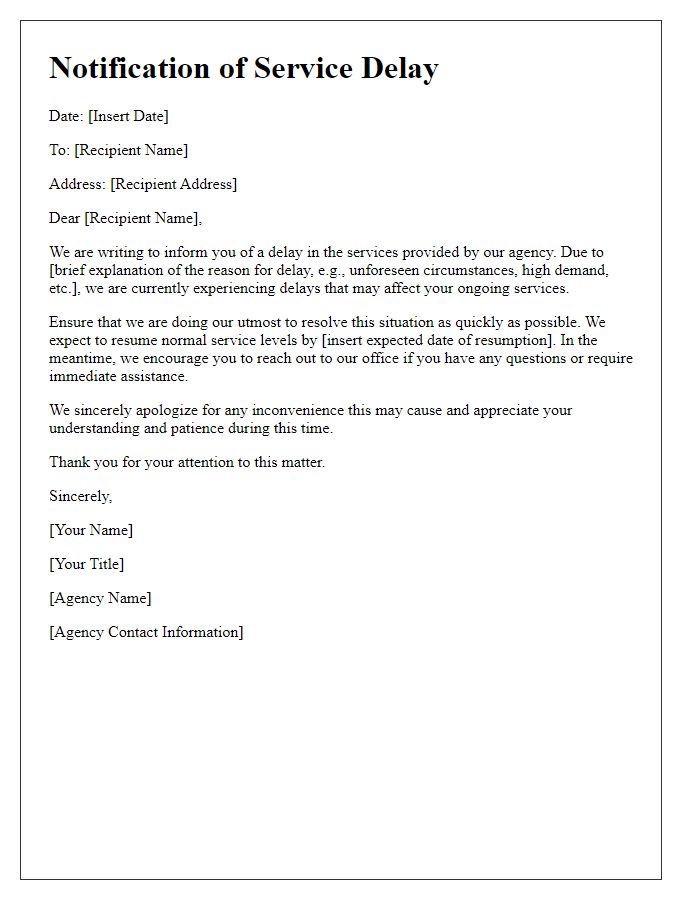
Letter template of service interruption announcement for beneficiaries of social service
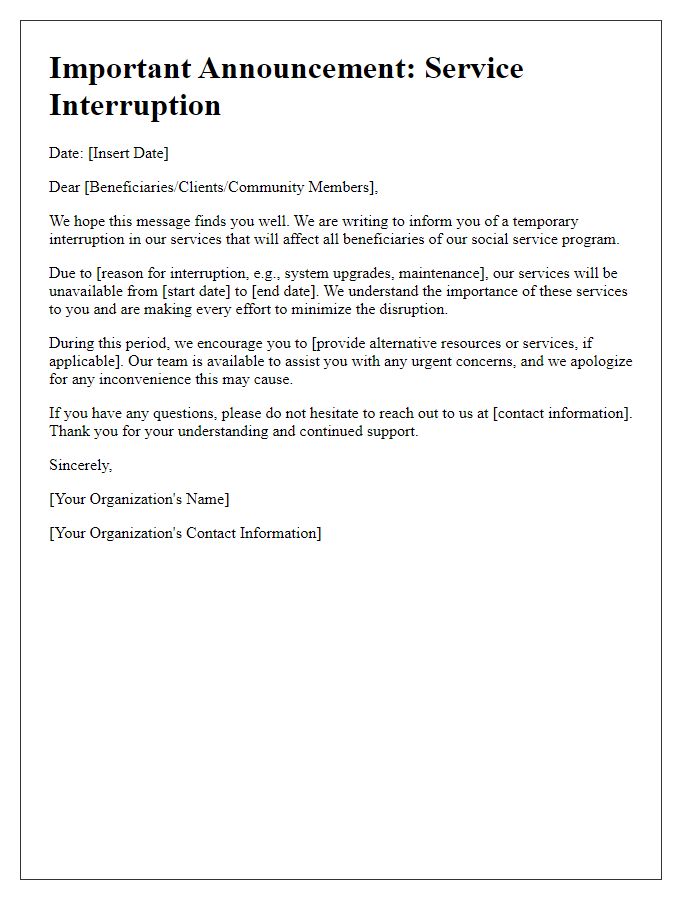
Letter template of information on service pause for clients of social service agency
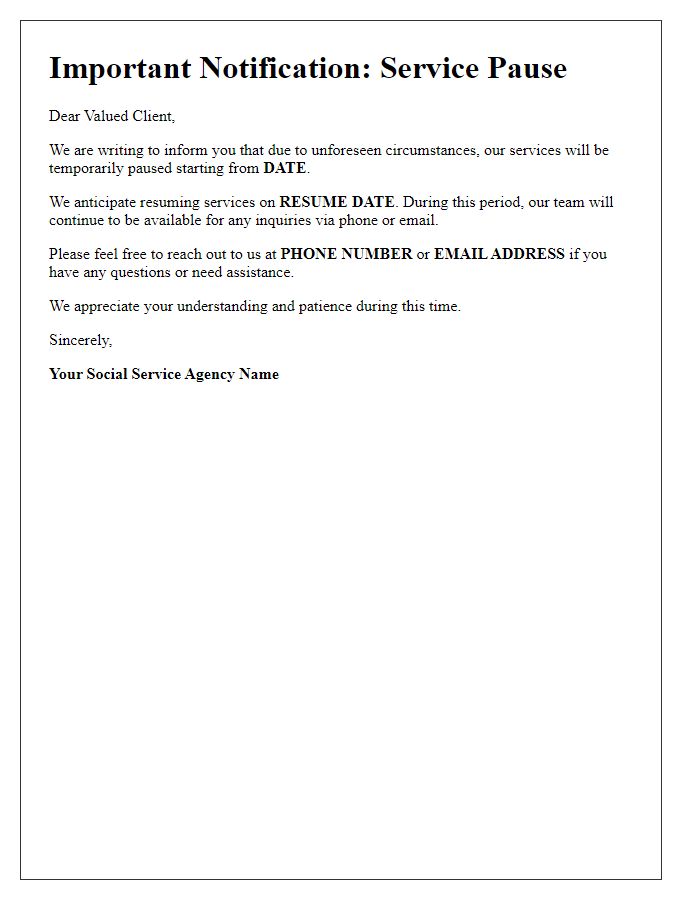
Letter template of service interruption explanation letter for social service users
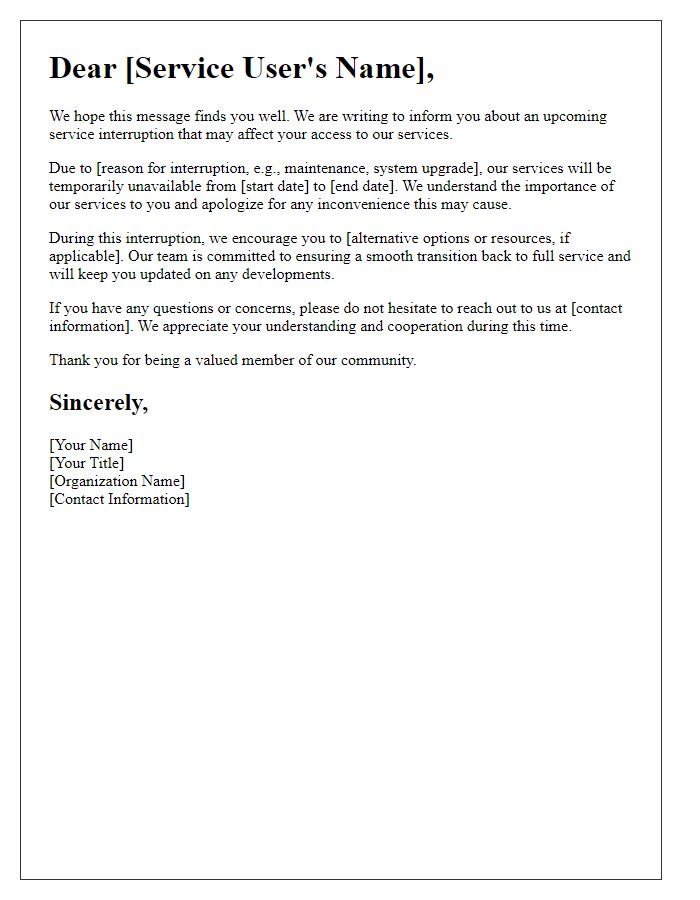

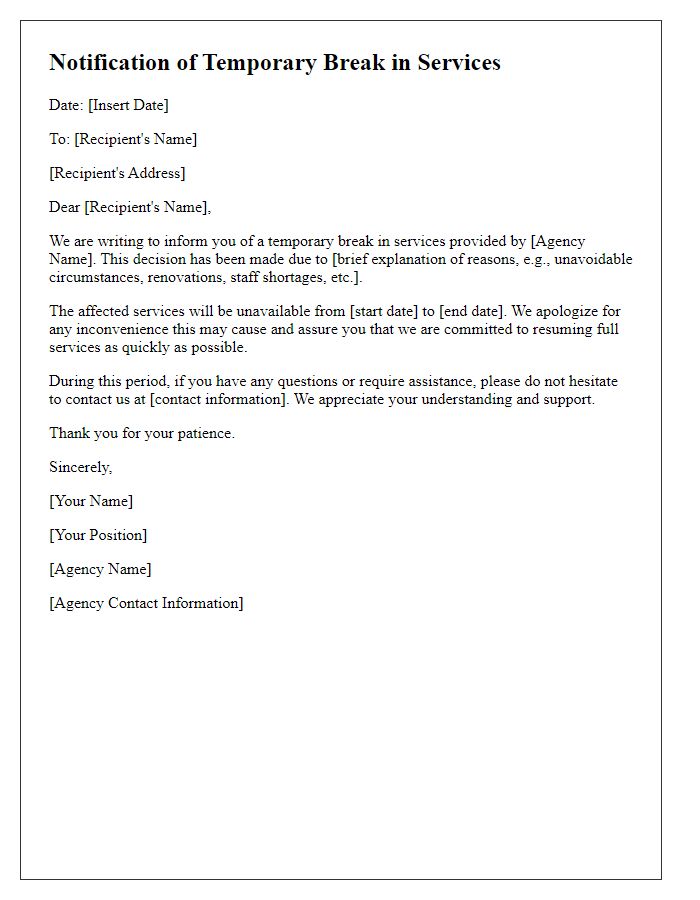

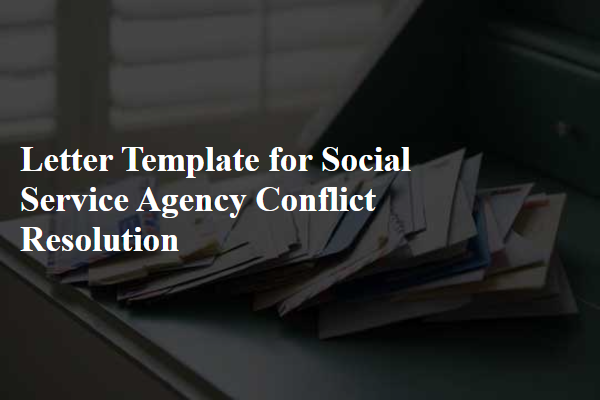
Comments